Ditapis dengan
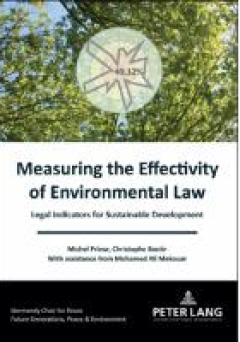
Measuring the Effectivity of Environmental Law: Legal Indicators for Sustaina…
This book presents a new method for measuring the effectivity of national and international environmental law. It took four years of research and experimentation to develop a way to construct evidence-based legal indicators. The existing environmental indicators evaluate only statistical, scientific or economic data. With legal indicators, governments, parliaments and other public and private a…
- Edisi
- -
- ISBN/ISSN
- 978-2-8076-1976-0
- Deskripsi Fisik
- 252 hlm.
- Judul Seri
- -
- No. Panggil
- -

Nuclear Law: The Global Debate
This book traces the journey of nuclear law: its origins, how it has developed, where it is now, and where it is headed. As a discipline, this highly specialized body of law makes it possible for us to benefit from the life-saving applications of nuclear science and technology, including diagnosing cancer as well as avoiding and mitigating the effects of climate change. This book seeks to give …
- Edisi
- -
- ISBN/ISSN
- 978-94-6265-495-2
- Deskripsi Fisik
- 333 hlm.
- Judul Seri
- -
- No. Panggil
- -
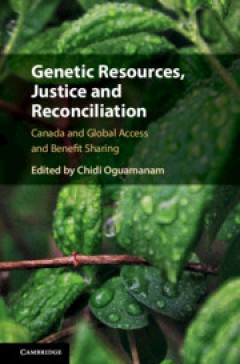
Genetic Resources, Justice and Reconciliation: Canada and Global Access and B…
This collection focuses on Indigenous perspectives on the sharing of traditional knowledge and the exploitation of genetic resources in Canada. This book is for public policy makers, Indigenous communities, environmental policymakers, lawyers, and researchers with a biodiversity, biotechnology, traditional knowledge, or climate change focus. Koleksi ini berfokus pada perspektif pribumi tent…
- Edisi
- -
- ISBN/ISSN
- 978-1-108-55712-2
- Deskripsi Fisik
- 302 hlm.
- Judul Seri
- -
- No. Panggil
- -

Environmental Protection and Transitions from Conflict to Peace: Clarifying N…
This book is the first targeted work in the legal literature that investigates environmental challenges in the aftermath of conflict. The volume brings together academics, policy-makers, and practitioners from different disciplines to clarify policies and practices of environmental protection and key legal considerations related to normative frameworks (e.g. international environmental law, int…
- Edisi
- -
- ISBN/ISSN
- 978-0-19-878463-0
- Deskripsi Fisik
- 513 hlm.
- Judul Seri
- -
- No. Panggil
- -
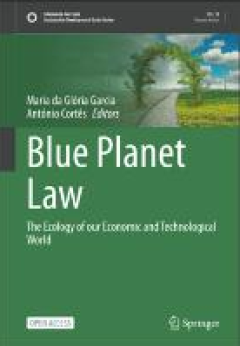
Blue Planet Law: The Ecology of our Economic and Technological World
Blue Planet Law is the global and future-oriented environmental law that is necessary to face the global environmental crisis in the Anthropocene, assuming especially the link between climate action (SDG 13) and ocean sustainability (SDG 14). This open access book focuses on means of overcoming global environmental problems such as climate change, ocean degradation and biodiversity loss and the…
- Edisi
- -
- ISBN/ISSN
- 978-3-031-24888-7
- Deskripsi Fisik
- 285 hlm.
- Judul Seri
- -
- No. Panggil
- -
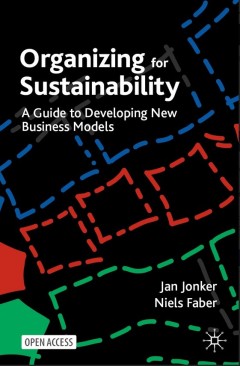
Organizing for Sustainability
This upper-level Open Access textbook aims to educate students and professionals on how to develop business models that have a positive impact on people, society, and the social and ecological environment. It explores a different view of how to organize value creation, from a focus on an almost exclusively monetary value creation to one that creates positive impact through multiple values. T…
- Edisi
- -
- ISBN/ISSN
- 978-3-030-78157-6
- Deskripsi Fisik
- 259 hlm.
- Judul Seri
- -
- No. Panggil
- -
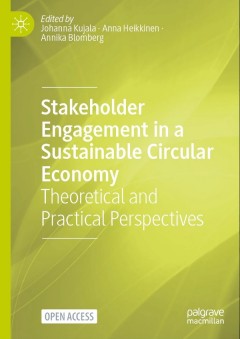
Stakeholder Engagement in a Sustainable Circular Economy
The purpose of this open access edited collection is to discuss the role and importance of stakeholder engagement in a sustainable circular economy from multiple theoretical and practical perspectives. Developing and maintaining a circular economy is an essential step to a more environmentally friendly and socially inclusive society. In addition to redesigning products and business models to mi…
- Edisi
- -
- ISBN/ISSN
- 978-3-031-31937-2
- Deskripsi Fisik
- 473 hlm.
- Judul Seri
- -
- No. Panggil
- -
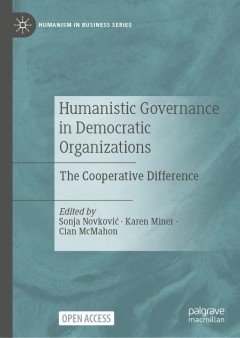
Humanistic Governance in Democratic Organizations
This open access edited book brings together a number of theories under the umbrella of humanistic governance to develop a persuasive alternative perspective on governance, particularly for democratic organisations such as co-operatives. It examines how we can move beyond a profit-first approach to governance, into a framework that prioritises human dignity in all aspects of an operation. Thi…
- Edisi
- -
- ISBN/ISSN
- 978-3-031-17403-2
- Deskripsi Fisik
- 460p
- Judul Seri
- -
- No. Panggil
- -
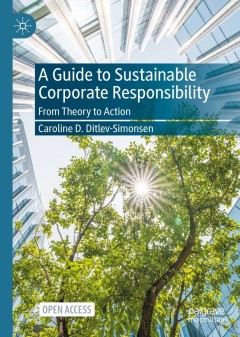
A Guide to Sustainable Corporate Responsibility
This open access book discusses the challenges and opportunities faced by companies in an age that increasingly values sustainability and demands corporate responsibility. Beginning with the historical development of corporate responsibility, this book moves from academic theory to practical application. It points to ways in which companies can successfully manage their transition to a more res…
- Edisi
- -
- ISBN/ISSN
- 978-3-030-88203-7
- Deskripsi Fisik
- XIV, 274p
- Judul Seri
- -
- No. Panggil
- -
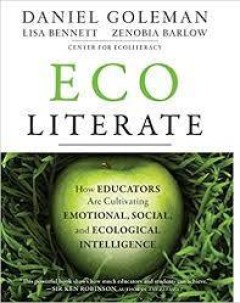
Eco Literate: How Educators are Cultivating Emotional, Social, and Ecological…
- Edisi
- 1
- ISBN/ISSN
- 978-1-118-10457-6
- Deskripsi Fisik
- xviii, 174 hlm.; 23,5 cm.
- Judul Seri
- -
- No. Panggil
- 363.70071 Gol e
- Edisi
- 1
- ISBN/ISSN
- 978-1-118-10457-6
- Deskripsi Fisik
- xviii, 174 hlm.; 23,5 cm.
- Judul Seri
- -
- No. Panggil
- 363.70071 Gol e
 Karya Umum
Karya Umum  Filsafat
Filsafat  Agama
Agama  Ilmu-ilmu Sosial
Ilmu-ilmu Sosial  Bahasa
Bahasa  Ilmu-ilmu Murni
Ilmu-ilmu Murni  Ilmu-ilmu Terapan
Ilmu-ilmu Terapan  Kesenian, Hiburan, dan Olahraga
Kesenian, Hiburan, dan Olahraga  Kesusastraan
Kesusastraan  Geografi dan Sejarah
Geografi dan Sejarah